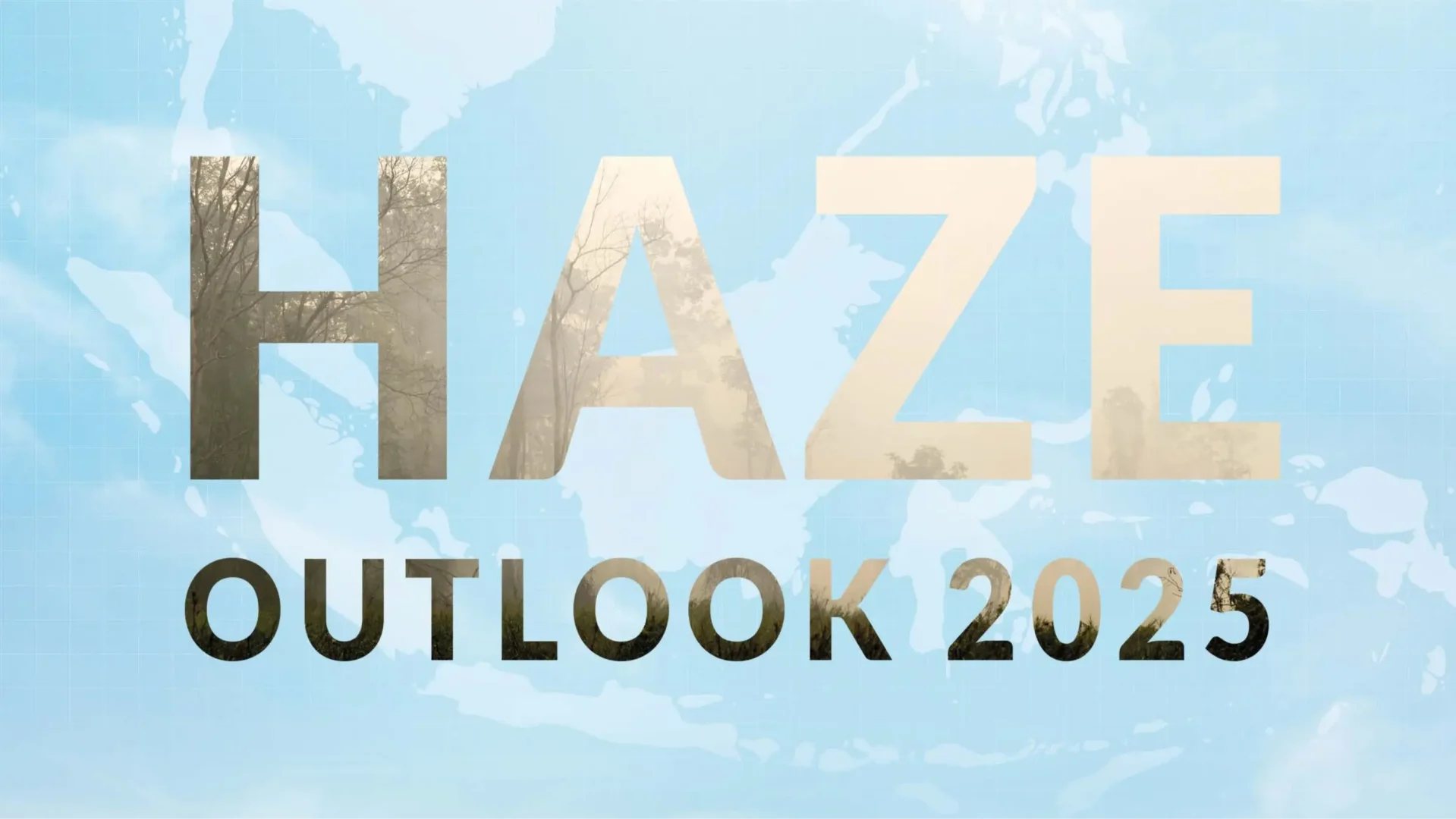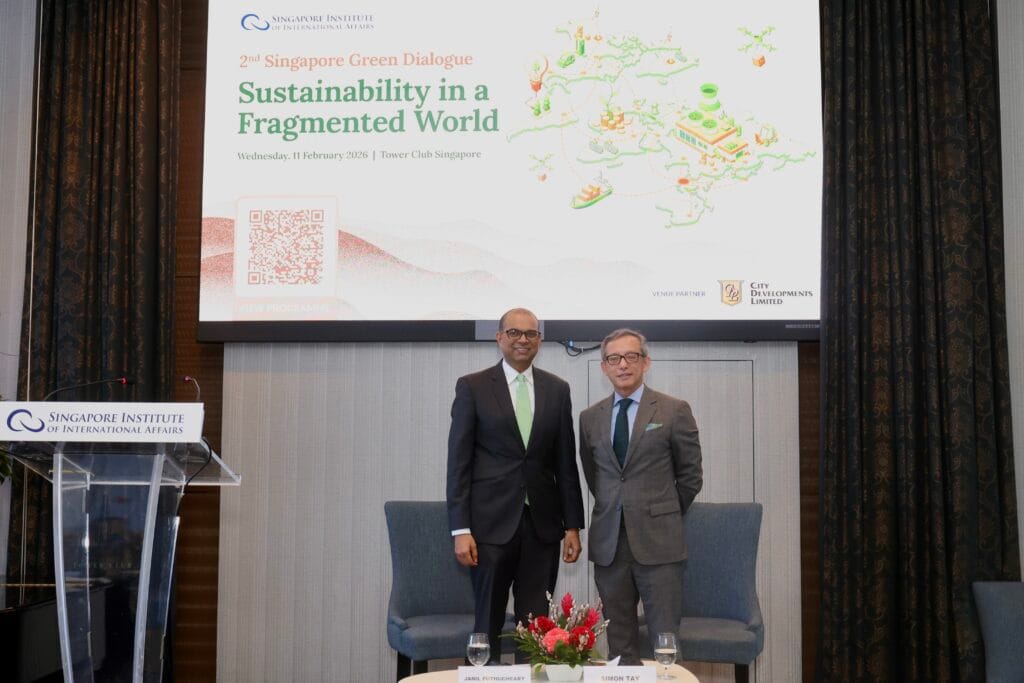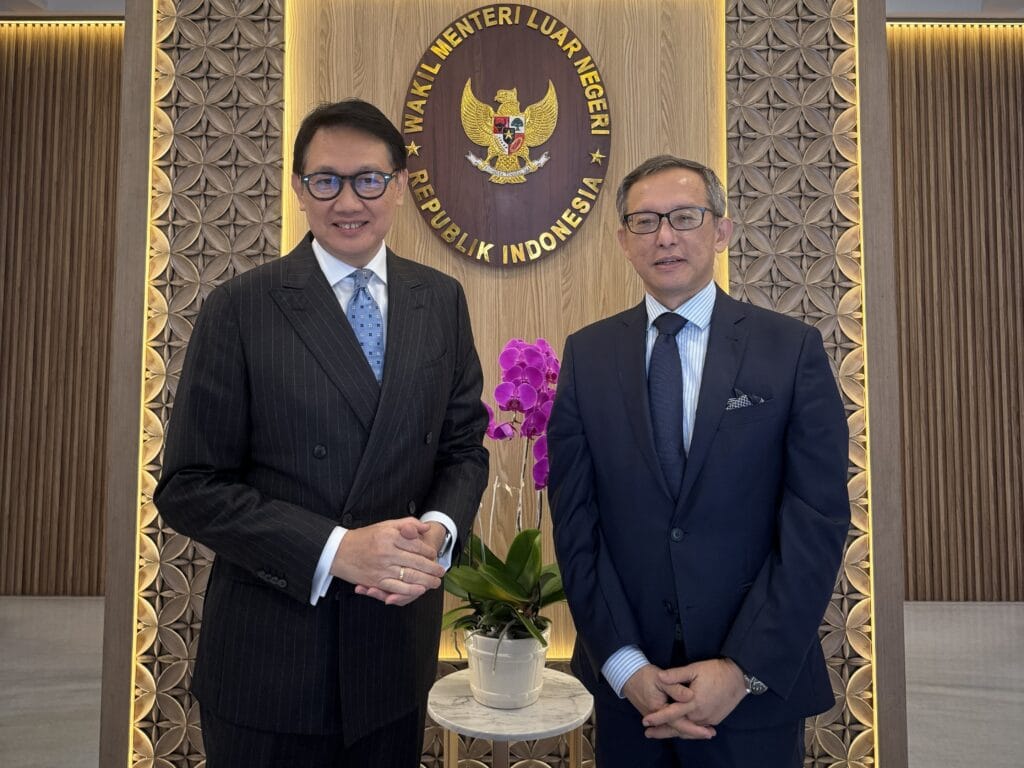MEDIA RELEASE
FOR IMMEDIATE RELEASE
Haze Outlook 2025: Medium Risk Amid Weather and Policy Concerns
Singapore, 28 July 2025 – The Singapore Institute of International Affairs (SIIA) today released its seventh annual ‘Haze Outlook’, assigning an Amber (medium risk) rating for the likelihood of a severe transboundary haze event in Indonesia, Malaysia, and Singapore in the second half of 2025. This marks a notable shift from last year’s Green (low risk) rating and reflects growing concerns over rising deforestation, volatile commodity markets, and uncertain policy transitions.
The Outlook uses a traffic light system — Green (low risk), Amber (medium risk), Red (high risk) — to assess the potential severity of haze events based on weather, market, and policy indicators.
According to the report, although 2025 is expected to see a milder and shorter dry season, recent fires in Sumatra in the week of 20 July have already resulted in some transboundary haze and unhealthy air quality affecting parts of Peninsular Malaysia. The worst of the haze have not reached Singapore, but the incident underscores the need for continued vigilance.
“Early in the year, many weather assessments projected a relatively benign haze season,” said Associate Professor Simon Tay, Chairman of the SIIA. “However, as the situation evolved, it has become clear that regional fire and haze risks are rising — not just from weather, but from global economic and policy changes. If this had been assessed a month ago, we might have issued a Green rating. But the fires and market conditions warrant caution. There is a change in circumstances, and there should be concern”.
He added that for haze prevention, “good policies are needed to ensure that our region is not at the mercy of weather conditions”.
Key findings from the report include:
- Weather: Neutral El Niño Southern Oscillation (ENSO) and possible negative Indian Ocean Dipole (IOD) conditions, the two weather phenomena that affect rainfall in our region, suggest a milder dry season in 2025. However, even a mild dry season is still a dry season, and fire risk remains in vulnerable regions. Looking ahead, another extreme dry period could occur between 2027–2030 based on the intervals between past El Niño events. The ASEAN region must continue efforts to prevent fires and haze in the long term.
- Markets: Agricultural commodity prices have been elevated since the COVID-19 pandemic and remain at high levels, particularly for palm oil where supply is not keeping pace with international demand. Although high prices have not yet triggered a major rise in deforestation, think tank estimates show an uptick in deforestation in Indonesia between 2023 and 2024, particularly in Sumatra, close to Singapore and Malaysia.
- Policies: Indonesia’s new Prabowo administration has signalled continuity in maintaining forest management policies established under the previous Jokowi administration, which successfully addressed the causes of fires and haze after 2015. However, Indonesia’s agricultural sector is facing a triple challenge of meeting food, fuel, and export demands. NGOs have expressed concern that initiatives such as Indonesia’s increased use of biofuels and development of food and energy estates in Papua may inadvertently lead to deforestation and land degradation.
“There are growing concerns that commodity markets still need more supply,” said Ms. Khor Yu-Leng, Associate Director for Sustainability at the SIIA. “Prices have stayed high for months, and we’re starting to see signs of increased land use change globally. While overall Southeast deforestation is still far below 2015 levels, the longer-term risk is whether rising global demand and new policy directions will drive expansion in ways that undermine environmental safeguards.”
Mr. Aaron Choo, SIIA’s Senior Assistant Director for Special Projects and Sustainability, added, “We are not saying agriculture is the problem. More output is needed to meet food security and energy needs. But development must be done sustainably, to avoid increasing deforestation and therefore the risk of fires and haze.”
The report also urges greater regional cooperation – ASEAN is taking steps to enhance multi-stakeholder partnerships to promote sustainable land management, such as through the ASEAN Meeting of the Technical Working Group (TWG) and Sub-Regional Ministerial Steering Committee on Transboundary Haze Pollution (MSC) meeting. At the 26th MSC meeting held on 10 July 2025 in Brunei, the meeting noted the progress made in implementing the Second Roadmap on ASEAN Cooperation towards Transboundary Haze Pollution Control with Means of Implementation (Hazefree Roadmap 2023-2030), which is essential in driving forward the shared vision of a Transboundary HazeFree ASEAN by 2030.
Since its inception in 2019, the ‘Haze Outlook’ report is based on research and regional engagement with government officials, companies, NGOs, as well as experts across ASEAN and beyond. The 2025 full report can be downloaded via the SIIA website here.
***
For further enquiries, please contact the SIIA at media@siiaonline.org.
***
Singapore Institute of International Affairs (SIIA)
The Singapore Institute of International Affairs (SIIA) provides insights and perspectives for policymakers, businesses and individuals in navigating issues facing the world. Our work serves as a bridge between these stakeholders, to nudge policy change through dialogue and collective action.
As a founding member of the ASEAN-ISIS (ASEAN Institutes of Strategic and International Studies) network since 1988, we engage in “Track II” diplomacy, fostering dialogue among stakeholders in our region and beyond.
We have been consistently ranked as one of the leading think tanks in Southeast Asia and the Pacific, in the Global Go-To Think Tank Index* by the University of Pennsylvania. Since 2017, we were ranked the No. 1 independent think tank in Asia. We were also recognised as one of the top 50 think tanks globally, excluding the United States of America. In 2019, we were recognised as the No. 1 think tank in South Asia, Southeast Asia, and the Pacific (excluding India). In 2020, we were also recognised as one of the think tanks with the best policy and institutional response to the COVID-19 pandemic.
Our vision is to contribute to a region that is inclusive, peaceful and prosperous – an integrated, sustainable and globally competitive ASEAN and a Singapore that is an open, dynamic hub and responsive node.
*Note: Professor James McGann, the creator of the Global Go To Think Tank Index, passed away in 2021. As a result, the Index has not been updated. The Lauder Institute has not indicated when or if it will continue publishing the Index. The index was last published in 2020.




